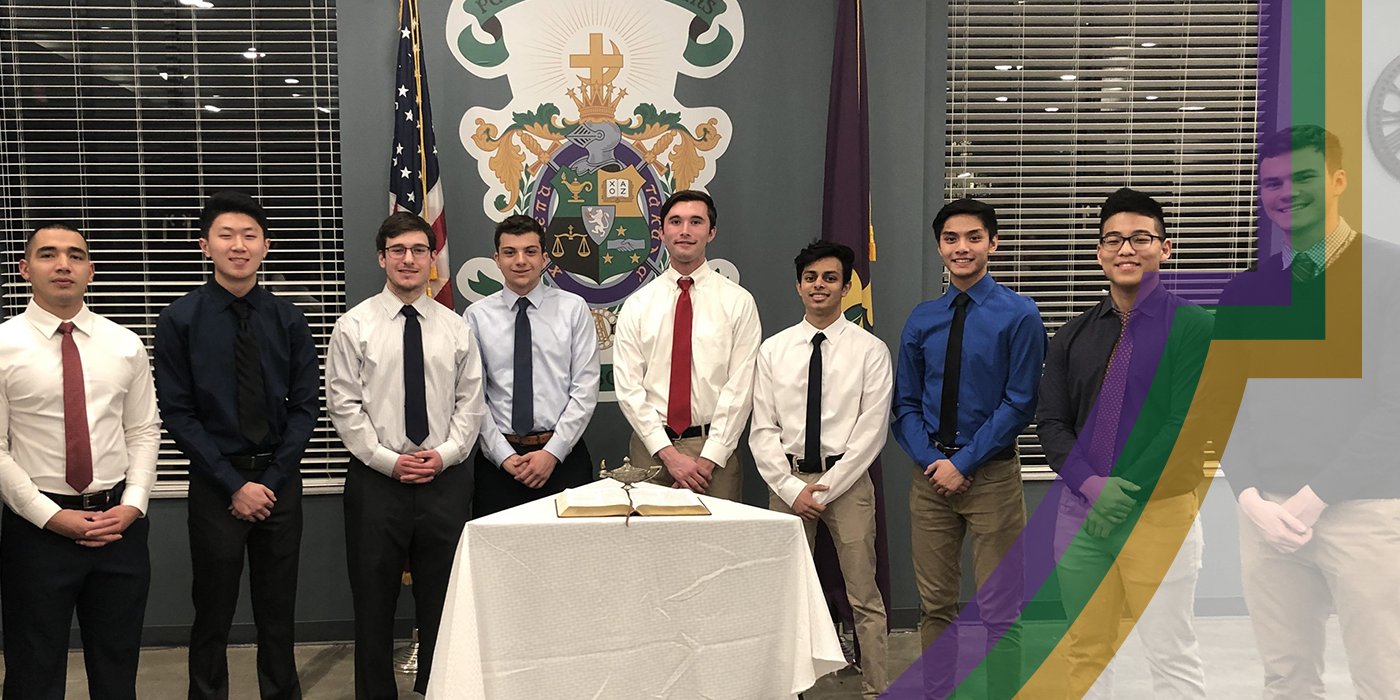 As a part of the planning and research for the new strategic plan, Board Chairman Jeff Stuerman (Culver-Stockton 1982) gave each Board member a copy of the book Marketing to Gen Z — the Rules for Reaching this Vast and Very Different Generation of Influencers.
As a part of the planning and research for the new strategic plan, Board Chairman Jeff Stuerman (Culver-Stockton 1982) gave each Board member a copy of the book Marketing to Gen Z — the Rules for Reaching this Vast and Very Different Generation of Influencers.
For those who don’t know, Gen Z encompasses anyone born between 1996-2010. In contrast, Millennials (or Gen Y) were born between 1979-1995.
As the Lambda Chi Board and International Headquarters staff continue to finish the draft of the strategic plan, the focus on providing an attractive, relevant and transformative experience to Gen Z is a top priority.
In the book, authors Jeff Fromm and Angie Read conclude their research with six mindsets of young consumers:
- Social Circle: Is My Brand Part of Cultural Conversations?
“When brand marketers hear the word “social” they most often think of social media. Yes, social media is a powerful tool, but it’s just one part of the overall social circle: the modern consumer’s team of advisors. The social circle is the most influential pillar in the Youth Mindset.” - Self: Does My Brand Create an Emotional Connection with the Consumer?
“Emotion is a powerful force. In fact, consumers with a strong emotional bond to a brand are less likely to stray. Building emotional connections is difficult, but it’s ultimately the key to exceptional brand performance.” - Innovative: Is My Brand Constantly Improving and Reinventing Itself?
“Technology is making it easier for individuals and companies to innovate. An advance in one industry changes in another expectations about what is possible or expected. Modern consumers want the novelty, efficiency, and effectiveness that comes with product innovation, as well as they ways brands can make their lives easier, faster, and just generally better.” - Trusted: Is My Brand Remarkably Consistent?
“Consumers today have more access to brands than ever before. Keeping secrets and important information hidden behind red tape is not longer an option. Building trust is the first step to any great relationship, and the most trusted brands are transparent, authentic, and altruistic.” - Purposeful: Does My Brand Add Good to Society?
“Youth Mindset consumers are looking for brands with a humanitarian approach to business. Today, brands must acknowledge that the triple bottom line — people, planet and profit — is alive and well. Businesses cannot exist in a modern market if they focus solely on profit and loss statements. Consumers look to their favorite brands to help them make their communities better and to provide them with the tools they need to impact their world.” - Accessible: Is My Brand Hyperuseful and Hyperconvenient?
“Accessibility is crucial. Youth Mindset consumers look for products and services that remove frustration and friction, easily fit into their lives, and address their various needs. And accessibility isn’t confined to physical presence; consumers today are looking for access to brands across both physical and digital channels and for a seamless transition between the two. This all boils down to once big idea: Useful is the new cool.”
“Today more than ever, youth culture permeates mainstream attitudes,” Fromm and Read wrote. “Both market trends and consumer purchasing behavior respond to the shift in attitudes and beliefs. As early adopters of digital, social and mobile trends, young consumers create and overarching mindset that determines brand health and financial performance. our research of young consumers’ behaviors and attitudes, six mindsets emerged that highlight how young consumers, as a whole, influence consumer spending and behaviors across all generations.”
Derrick Feldmann — Gen Z Expert and Lambda Chi Brother
In addition to the book, Stuerman also engaged a Gen Z expert, Derrick Feldmann, who also happens to be a Lambda Chi alumnus from our Delta-Phi chapter at Southeast Missouri State University. Feldmann presented to the Board and is providing ongoing advice and counsel to the Board as the strategic plan is finalized.

Feldmann is a prominent speaker, researcher and advisor for causes and companies on social movements and issue engagement. He regularly speaks at events and organizations throughout the country and around the world on how causes and companies can drive public interest in social change.
In his presentation to the Board, entitled Understanding, Influencing, Acting, Feldmann focused on three areas: Understanding Generations, College Today and Offerings, and Involvement in Programs and Approach to Engagement.
In the first section, Feldmann reviewed the generations and the transition between Gen X, Millenials and Gen Z. He also discussed the generational differences and similarities and provided case studies
The second section reviewed college today and what students now and in the future will look like. He also reviewed how Lambda Chi presents itself and how students consume that message. Finally, he reviewed how Lambda Chi could express offerings that would help shape the future vision for the fraternity.
The third and final section discussed how students and young people belong, believe and lead initiatives. How they create a new approach based on a pathway of belonging, believing and leading.
In a blog post in the Philanthropy News Digest, Feldmann summed how any successful non-profit organization should navigate the younger mindset.
“At the end of the day, supporters don’t know your board or your staff, or really care, one way or the other,” Feldmann wrote. “What they do care about, deeply, is the issue you are working to address, and like you they are looking for things they can do to make their small part of the world a better place.”
Conclusion
The message is clear that Gen Z is a very different animal than the Millenials. According to Fromm and Read, millenials are two screens, 3D, 12-second attention span, risk takers, public and optimistic. Gen Z is five screens, 4D, 9-second attention span, risk averse, private and realistic. Gen Z was raised on technology. They are old souls in young bodies. Technology should be invisible. Equality is non-negotiable. And, they smell marketing from a mile away. For them the ABCs of selling are “always be collaborative.”

Board Vice Chairman David Huffine (UNC-Greensboro 1984) summed up the Board’s intent to properly embrace this new generation as they draft the new strategic plan: “The character of Gen Z is still coming into focus for society, but a few things are crystal clear. They will be attracted to causes and organizations that offer inspiration and empowerment –and give them a good return on their investment. Lambda Chi Alpha has always provided those, but we must rethink how we offer and communicate the value proposition of membership –of Brotherhood– to Gen Z and to society.”


